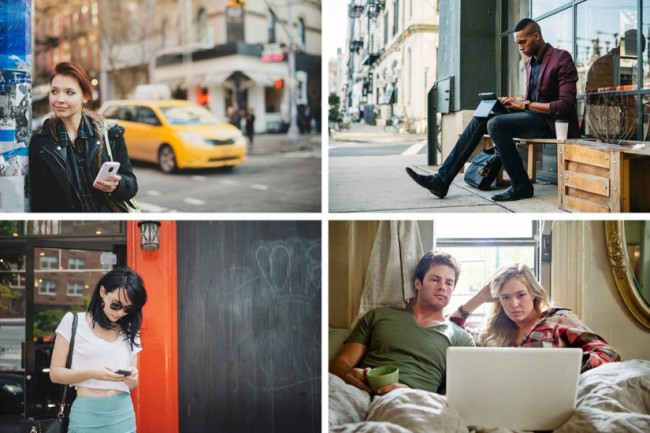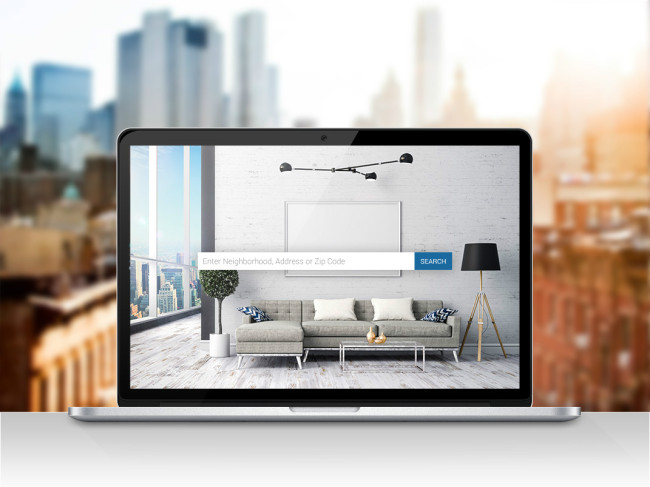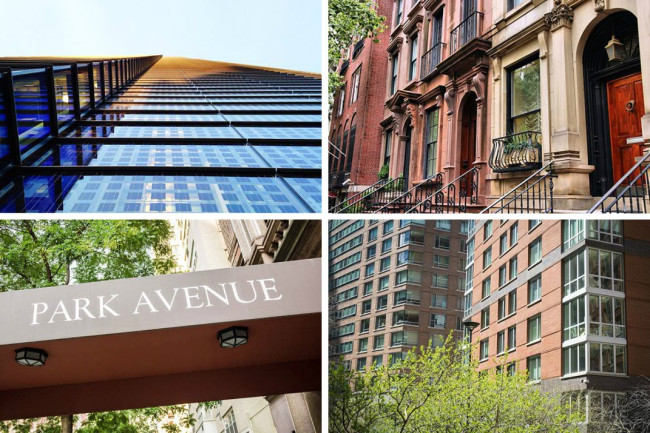10 places to check out in a NYC neighborhood before you move there

The playground can be a great place for parents to pick up valuable neighborhood intel.
When looking for a place to live, the apartment is obviously your primary focus. But while you're obsessing over square-footage, commute times, and dollar amounts, it's possible to lose sight of the fact that apartments are located in neighborhoods, which are filled with lots of people who already live there. And even though you'll spend much of your time inside, your neighbors can have a profound affect on your experience of living somewhere.
Not all people need or want the same things from their neighbors or neighborhoods, so there is no one thing to look out for. It's more about what is important to you and what makes you feel comfortable—or not. One person's "respectful" is another's person's "isolating." One person's "bro bar" is another's awesome place to watch the game.
Here are a few places to visit in a neighborhood you're thinking of moving to, particularly if you think you might stay a while.
1. The playground (if you have kids)
Those without kids can forget about this one, because a) Why would you care? and b) It's technically illegal to be an adult in a New York City playground without a child under 12 years old. But for people with kids, a lot can be learned.
You can see what parents allow their kids to do, whether there's what you consider a lack of discipline or helicopter parenting. This can help you figure out who your kids are going to be going to school with, and what parents you might be stuck socializing with.
A Park Slope mom named Lisa recalls visiting a playground in Westchester populated by nannies, Bugaboo strollers, and $200 stroller blankets. It was not her scene.
"You need to see if you relate to the type of parent there, because that's who you're going to be with," she says.
2. The park
Is there a park nearby? Great! But do people use it? Would you actually want to hang out there, or is it not so welcoming? A visit is the easiest way to find out.
3. The supermarket
It's probably a good idea to check out the nearest supermarket, to see what kind/quality of food it stocks, but also to get a somewhat randomized look at who lives in a neighborhood.
4. The library
Libraries tend to curate events, and book selection, based on the populations they serve. Additionally, many function as community hubs, where announcements are posted and people gather. Stop by: do things feel geared toward kids? Seniors? Are people using the library? Do the classes and events interest you, even if you may not ever attend one?
5. The bodega
Think all bodegas are the same? Think again. What newspapers, beer brands, and other goods a given bodega carries can tell you a good deal about who's around, or at least who the store is catering to. [Ed. note: The bodega near the train in my gentrifying Brooklyn neighborhood now carries Brooklyn Lager and advertises cappuccino on a hand-written sign on the door, but decent coffee and the New York Times have not yet arrived. That one is Dominican-owned and has your standard spread of Goya products and Boar's Head deli stuff behind the counter. The competitor next door, on the other hand, caters to local Mexicans, particularly those from the state of Puebla, with a pretty much exclusively Mexican selection, and a hot food menu with dishes from Puebla.]
6. The nearest train station
It'll give you a sense of who is coming and going, which will change depending on the time of day. For a snapshot of the working schlubs, peek in around rush hour. To see how many people are going out on the town, check in on a weekend at night.
7. The parking lot
The majority of New Yorkers don't spend a ton of time in parking lots, those who do know that people talk with their cars. Think: Is the lot filled with Mercedes and Lexuses? Or are there more beaters and 10-year-old minivans? And is one of these a good or a bad thing to you?
8. Restaurants and bars
Again, different people will want different things, but is one of the most popular restaurants in the area appealing to you? Is it bustling? Pretentious? Family-friendly? Welcoming? Is it full of people in a different life stage from you? Similarly, if you were looking to grab a beer or a cocktail, is there a place you'd feel comfortable doing that?
9. School pick-up or drop-off
Another one just for parents, this helps give a sense of the parenting culture and community. One person we spoke to didn't meet many parents at one brownstone Brooklyn school, because the majority of people doing drop-off were nannies.
10. The street at night
Joel, a Kensington resident, thinks there's no substitute for taking a stroll late a night.
"Walk around it at 11 p.m. on a Friday night. End of story," he says. Are there people around? (Almost always a good thing.) Do you feel safe? Places that don't cause concern in the light of day can feel very different after dark.


























